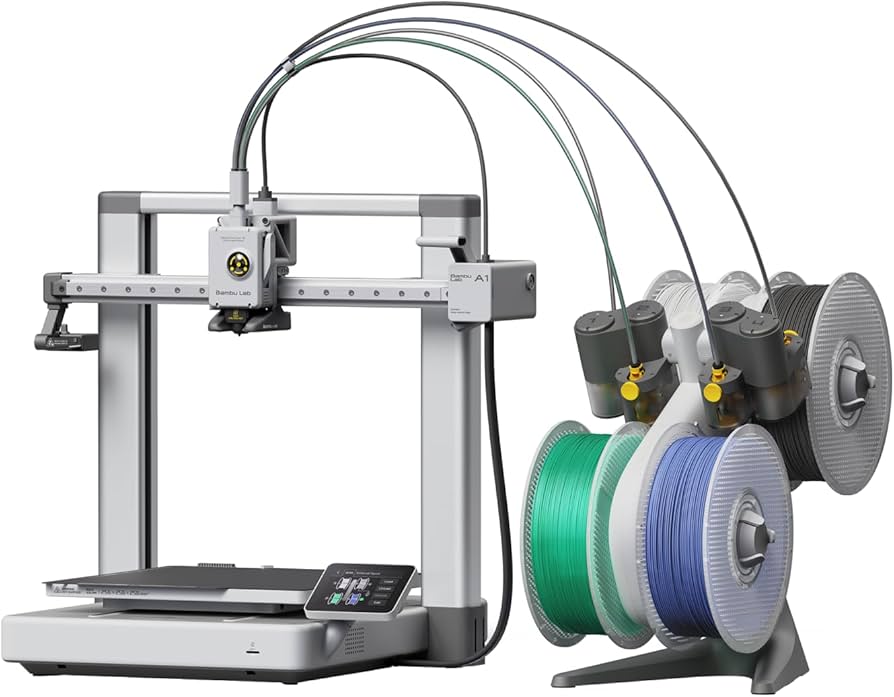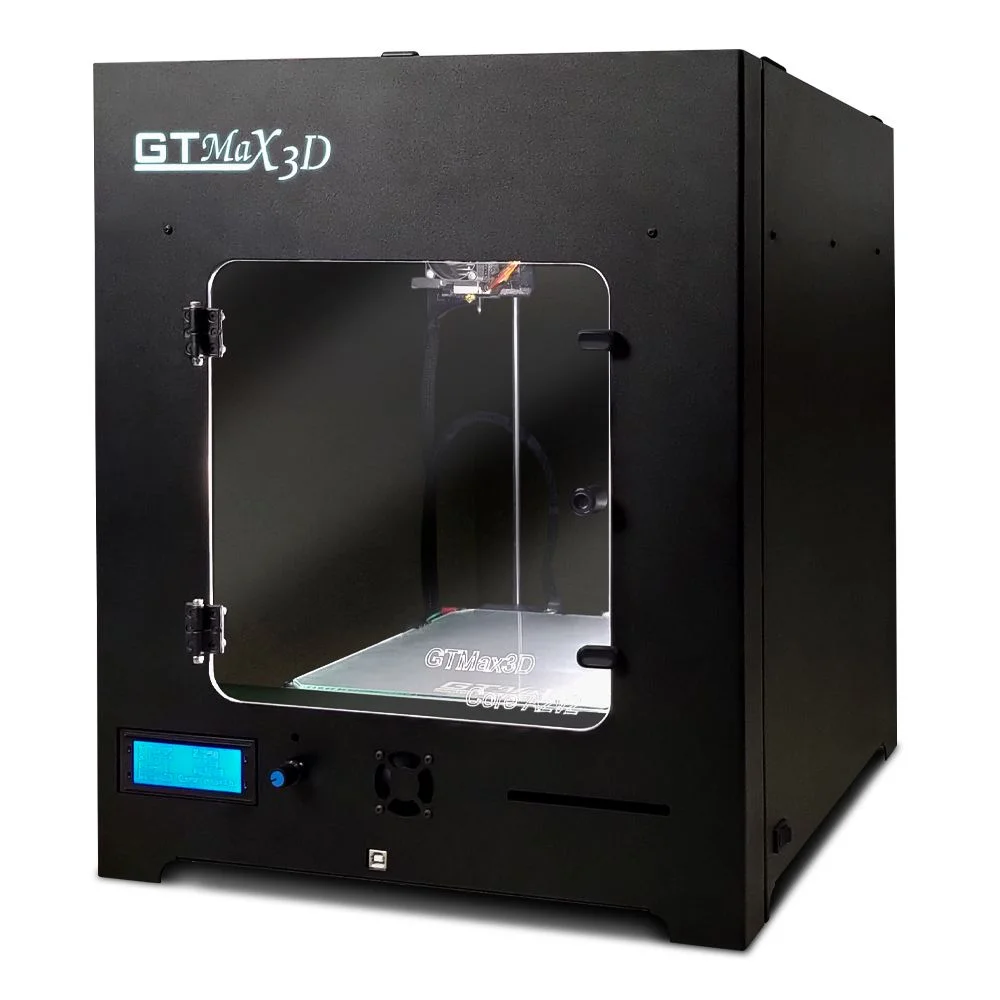Compare A1 vs Core A2V2
Comparison between the best 3D printers
Choose the best 3D printer at the best price. The cheapest 3D printers are here.
Buy a 3D printer here with 3D Fila.
 |
 |
|
| Model | A1[BUY A1] |
Core A2V2 |
| Printing Material | Filament | Filament |
| Buy Filament for Bambu Lab A1 | Buy Filament forGTMax Core A2V2 | |
| Estimated price | $700,00 | $684,00 |
| Manufacturer | Bambu Lab | GTMax |
| Release Year | 2023 | 2019 |
| Print Volume [mm] | 256x256x256 | 220x220x240 |
| Printer Size [mm] | 385x410x430 | 425x460x512 |
| Weight [kg] | 8,3 | |
| Power Loss Recovery | YES | YES |
| Enclosed printer | NO | YES |
| Bed Leveling | Automatic | |
| Filament End Sensor | YES | YES |
| Bed type | Heated | Heated |
| Power supply system | Direct Drive | Bowden |
| Standard nozzle | 0,4 | 0,4 |
| Maximum Nozzle Temperature [°C] | 300 | 295 |
| Maximum Bed Temperature [°C] | 100 | 135 |
| Maximum printing speed [mm/s] | 500 | 150 |
| Filament holder | YES | YES |
| Camera for supervision | YES | YES |
| Recommended filaments | PLA, PETG, TPU, PVA | PLA, PETG, Tritan, Flex, ABS |
| Recommended slicers | SuperSlicer, PrusaSlicer, Cura, OrcaSlicer | Cura, Simplify, Slic3r, IdeaMaker |
| Maximum Resolution [mm] | 0,1 | 0,05 |
| Processor | ||
| Display | Touchscreen 3,5 | Mono |
| Power Supply | 350 W | |
| Connectivity | Wi-Fi, Bambu-Bus, Cartão Micro SD | SD / USB |
| Operating systems | Windows, Linux, Macbook | Windows, Mac, Linux |
| Date of registration in the system | 2024-07-17 | 2022-11-12 |
| Release date | 2023 | 2019 |
| Extra features | The BambuLab A1 printer features fully automatic calibration, multi-color printing with the AMS system, active flow rate compensation, quick nozzle change with a clip, active motor noise cancellation, a build volume of 256x256x256 mm³, a maximum extruder temperature of 300°C, and a heated bed of up to 100°C. In addition, it has high precision, a machine health management system and an intuitive 3.5-inch touchscreen interface. | The GTMax3D ProCore A2v2 is a compact and robust 3D printer with a printing area of ??220 x 220 x 240 mm. It offers high print quality, ranging from 0.05 mm to 0.32 mm. Its features include automatic filament detection and changing, travel speed of up to 300 mm/s, and a heated aluminum bed with a glass top. It has automatic bed leveling with 16 points and an all-metal hotend that reaches up to 298°C. The printer has a carbon steel frame with electrostatic painting, is automatic bivolt and has connectivity via USB and SD card. The Bowden system and core xy kinematics complete its advanced features. |
| Support for multiple colors and materials (AMS and CFS) | YES | NO |
Notes * |
||
| Cost-benefit | 7 / 10 | 6 / 10 |
| Hardware | 4.2 / 10 | 2.5 / 10 |
| Tela | . | . |
| Print volume | 4 / 10 | 3 / 10 |
| Performance | 4 / 10 | 1 / 10 |
| [BUY A1] |
Conclusion |
| In conclusion, when comparing the Bambu Lab A1 and the GTMax Core A2V2, the Bambu Lab A1 emerges as the more advanced and feature-rich option. It boasts a larger print volume, higher maximum printing speed, and cutting-edge features such as automatic calibration and multi-color printing support. These capabilities contribute to its overall higher cost-benefit rating, making it a suitable choice for those seeking a robust 3D printing solution. On the other hand, while the GTMax Core A2V2 is more affordable and offers solid print quality with a compact design, it falls short in terms of features and overall performance. Its smaller build volume and lower maximum printing speed may limit creative possibilities for users. Additionally, the A2V2's lack of multi-material support and advanced functionalities may deter users looking for a more versatile printer. Ultimately, for users prioritizing advanced technology and higher performance, the Bambu Lab A1 represents a worthwhile investment, even at a slightly higher price point, while the GTMax Core A2V2 may appeal to those on a tighter budget who still want reliable print capabilities, albeit with certain limitations. |

